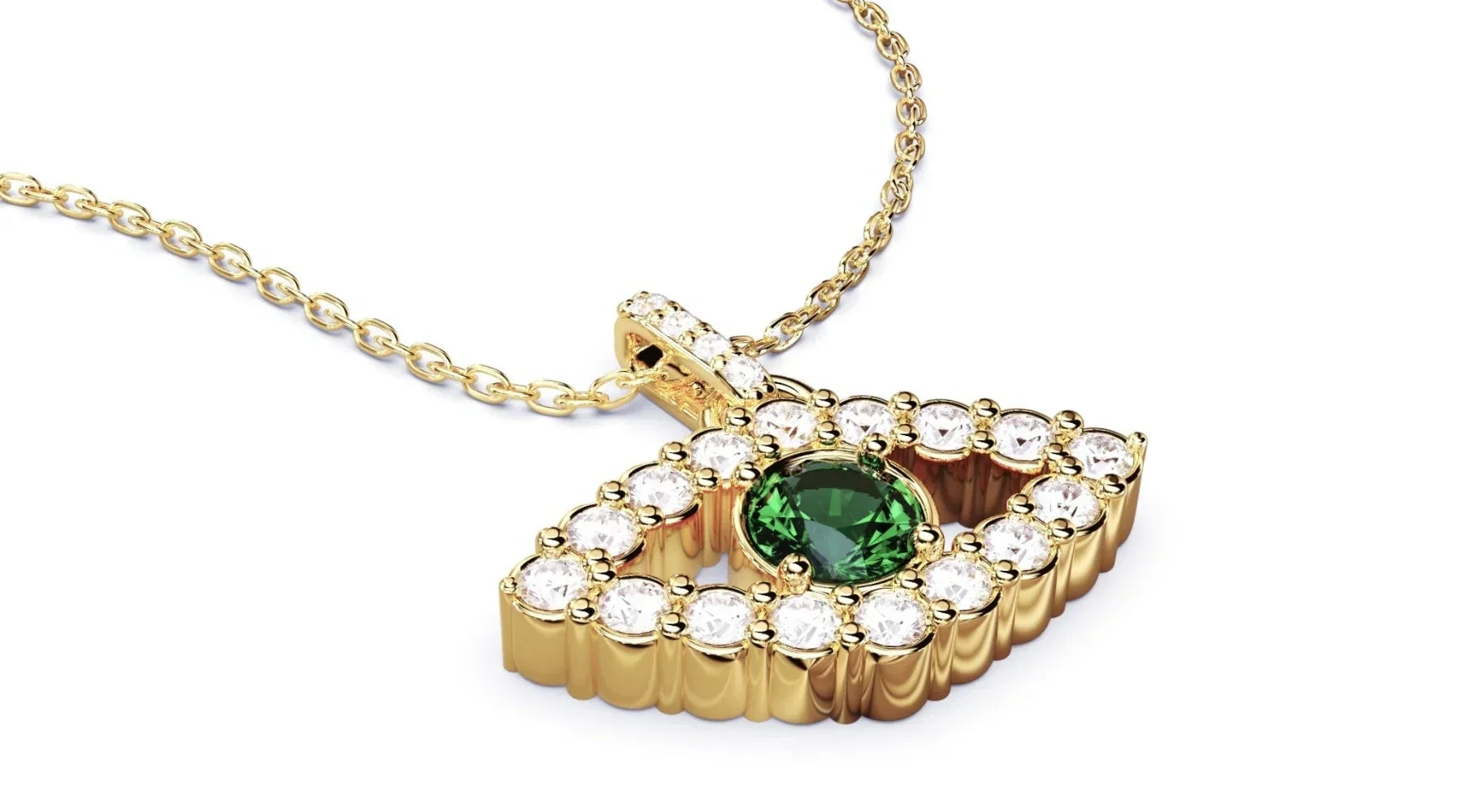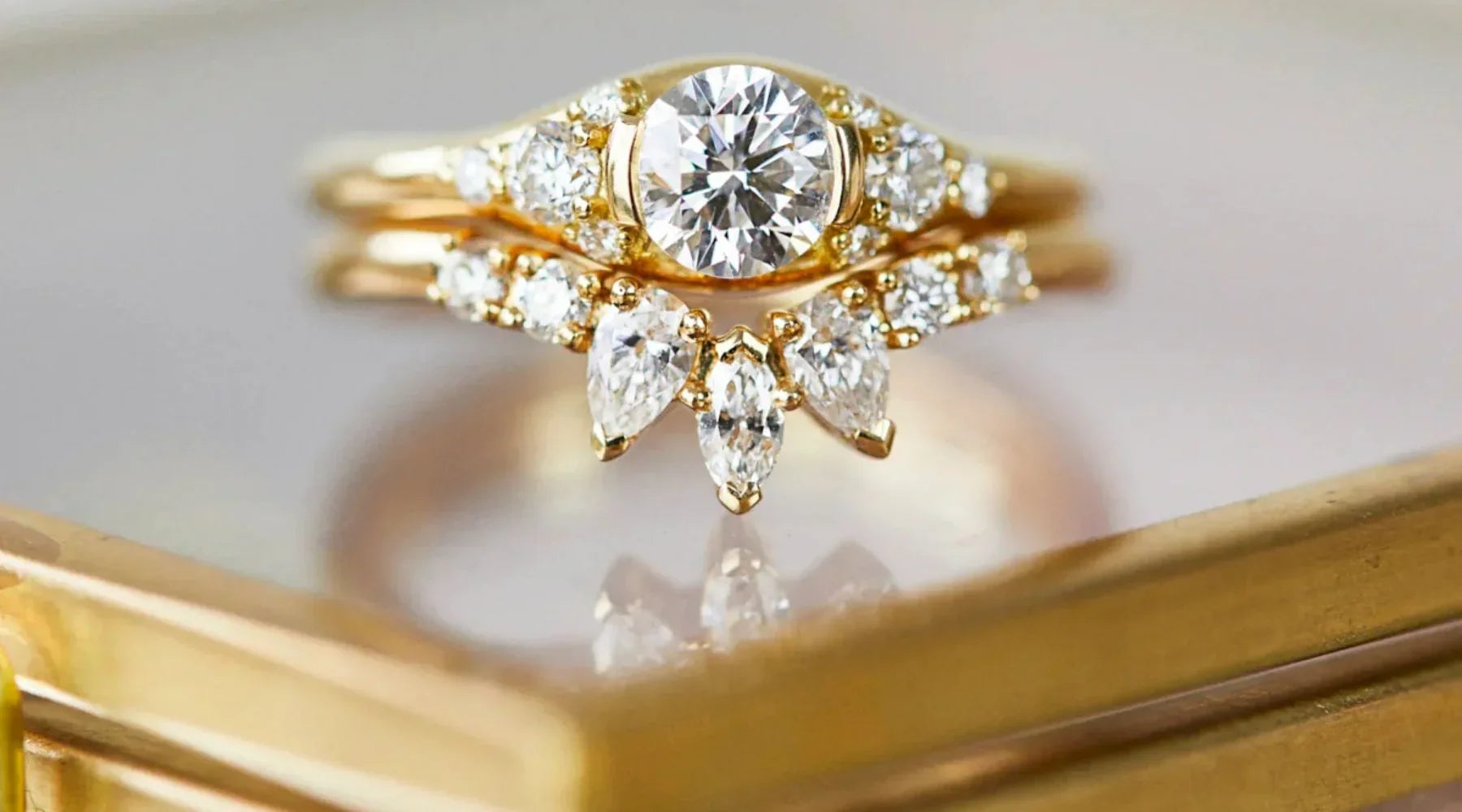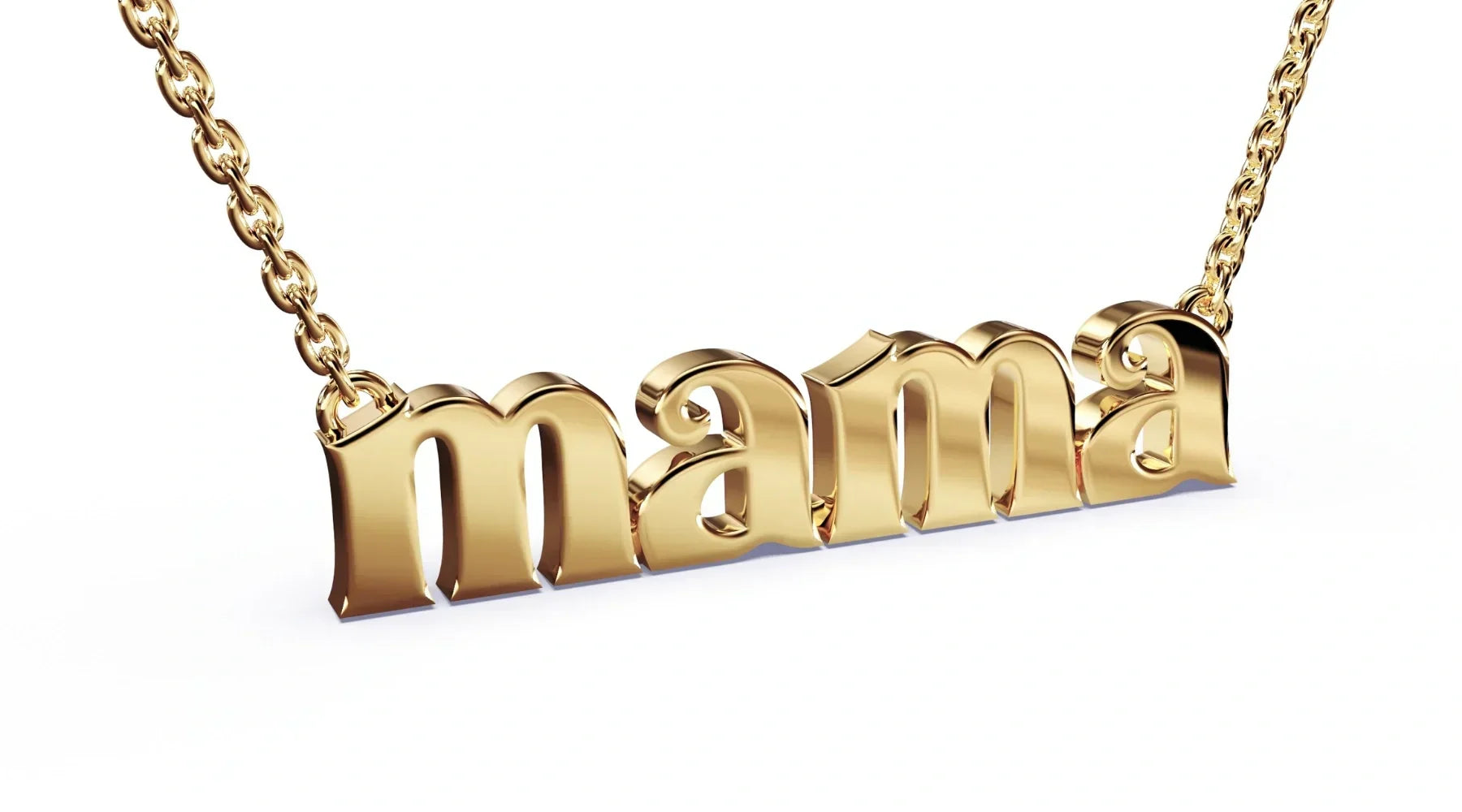
Is Jewellery Cheaper Online in the UK? Jewellery Prices Online vs In-Store (2025 Guide)
Is jewellery really cheaper online, or is the high street still worth the price tag? With prices shifting across the UK market, the truth isn’t as simple as it seems. This guide breaks down what buyers often miss — and how to compare online vs in-store jewellery like an expert.
Is jewellery cheaper online in the UK, or do you really get better value on the high street? With so many jewellers promising the “best deal,” it’s no wonder buyers feel torn. In this guide, I’ll compare jewellery prices online vs in-store, explain why the differences exist, and share the checks every UK buyer should make before they commit.
The Evolution of Jewellery Shopping in the UK (2025 Trends)
Not long ago, most jewellery purchases happened face-to-face in boutiques or high street shops. Today, online sales are surging – from diamond engagement rings to personalised name necklaces. Convenience, wider choice, and transparent pricing are driving people online, while the high street is leaning into service, trust, and aftercare.
As buying habits shift, the way people judge value online also changes. If you want the full picture of how to buy fine jewellery safely and confidently, the Ultimate Guide to Buying Fine Jewellery Online explains the entire process step by step.
Advantages of Buying Jewellery Online in the UK
Wide Selection and Personalisation
Online jewellers can offer a broader range of styles than most boutiques, from lab-grown diamonds to custom designs. For personalised jewellery like diamond name necklaces or initial pendants, the internet opens up creative options that many high street shops don’t provide.
Price Transparency
Websites often list detailed specifications – carat weights, clarity grades, and gold purity – so you can compare like-for-like. That level of transparency is harder to find in traditional shops.
Convenience and Time-Saving
Browsing 24/7 from your sofa and having jewellery delivered to your door is a huge draw, especially for busy buyers.
Promotions and Dynamic Pricing
Online shops frequently run flash sales or use dynamic pricing, meaning you may find pieces 20–40% cheaper than in-store.
Advantages of Buying Jewellery In-Store (UK Context)
See and Inspect in Person
Trying on a necklace, inspecting gemstone colour under different lights, or feeling the weight of a bracelet in your hand are experiences that online shopping can’t replicate.
Advice and Negotiation
Independent jewellers, especially in Hatton Garden, will often negotiate prices, particularly for diamonds and higher-ticket items. This flexibility can make the high street competitive.
Aftercare and Service
Many shops include resizing, cleaning, and repairs in the price, giving peace of mind long after the purchase.
Jewellery Price Comparison: Online vs In-Store (UK Examples)
| Item | Online Price (2025) | In-Store Price (2025) | Notes |
|---|---|---|---|
| Solitaire diamond ring, 1ct, GIA certified | £5,200 | £7,000 | Online saves on overheads; in-store may include resizing. |
| Diamond name necklace, 18ct gold, 0.5ct diamonds | £1,800 | £2,400 | In-store adds aftercare and boutique packaging. |
| 9ct gold chain, 20g | £1,050 | £1,400 | Online tracks gold price; retail adds higher mark-up. |
Why Online Jewellery Often Costs Less
- Lower overheads: No rent, shop fittings, or large staff to maintain.
- Stock models: Online jewellers may sell on consignment, cutting storage and insurance costs.
- Global reach: Buying directly from international suppliers can reduce intermediary mark-ups.
When In-Store Shopping Wins Out
- Negotiation power: You can often agree a better deal face-to-face.
- Added value: Resizing, cleaning, and service are bundled into the price.
- Peace of mind: Seeing hallmarks and comparing sparkle in person.
UK Buyer’s Checklist: Hallmarks, Certificates & Return Rights
Hallmarking law: In the UK, gold, platinum, palladium, and silver above certain weights must be hallmarked by law. Always check for the stamp. You can also explore hallmark examples directly from the London Assay Office, which sets and enforces hallmarking standards.
Diamond certificates: Stick with trusted certificates such as GIA or IGI. Avoid uncertified stones or vague descriptions.
Returns and VAT: The Consumer Contracts Regulations give you 14 days to return most online purchases, but personalised items may be exempt. You can read the full guidance on GOV.UK and check who covers VAT, shipping, and insurance.
Before comparing prices, always check the metal purity and authenticity of a piece. Our Gold Hallmark Guide explains exactly what each symbol means and how to verify that a piece is genuinely the metal it claims to be. The National Association of Jewellers also offers helpful hallmarking information for UK buyers.
| Factor | Online Jewellery | In-Store Jewellery |
|---|---|---|
| Price | Often 20–40% lower | Higher but negotiable |
| Selection | Wider, global | Limited to stock available |
| Certification | Must request/verify | Visible hallmarks and certificates |
| Returns | 14-day UK rights (exceptions apply) | Immediate exchanges or store policies |
| Aftercare | Varies by brand | Resizing and repairs often included |
Social Shopping & Influencer Jewellery Risks
Social media has made jewellery more visible, but also riskier. If a piece on TikTok or Instagram seems “too good to be true,” it probably is.
Watch out for:
- Risk No hallmark listed in the description or photos.
- Risk No clear return policy or company address.
- Risk Prices far below normal UK ranges for the same specs.
Always verify a seller’s credentials before committing – especially when you discover them through social media.
How to Compare Like-for-Like and Get Value
- Match specifications: carat, clarity, certificate, and metal purity.
- Confirm hallmarks in photos or descriptions.
- Check returns, resizing, and aftercare policies.
- Don’t be afraid to negotiate in-store.
Trust, Craftsmanship & Paying for Real Quality
The real difference between two pieces with the same carat and metal weight is the craftsmanship. A secure diamond setting, a polished finish, and a comfortable design are what transform jewellery into a modern heirloom. A low price may feel like a win, but if the piece doesn’t last, the cost is far higher in the long run.
FAQs: UK Edition
Is jewellery cheaper online in the UK than in-store?
Yes – online jewellery can often be 20–40% cheaper, especially for diamonds and simple gold designs. Online retailers have lower overheads, which means savings are passed on to you. That said, in-store purchases may include added services such as resizing, cleaning, and aftercare.
Do UK jewellers negotiate prices?
Yes, particularly in Hatton Garden and with independent jewellers. Larger chain stores tend to have fixed prices, but local jewellers often leave room for negotiation – especially on higher-value pieces like diamond rings.
What UK laws protect me when buying jewellery online?
Under the Consumer Contracts Regulations, you usually have 14 days from receiving your jewellery to cancel and request a refund. However, personalised and bespoke items are often exempt. Always read the seller’s terms carefully before buying.
Can I cancel or return a personalised jewellery order?
Most personalised or custom-made pieces are excluded from the standard 14-day return window. If a retailer offers returns on customised pieces, it’s a sign of confidence in their service – but legally, they don’t have to.
How do I check if a jewellery site is genuine?
Look for key signs: UK hallmarking information, secure checkout, a registered company address, clear returns policies, and independent reviews. Membership of a trade body like the National Association of Jewellers (NAJ) or the Assay Assured Trustmark adds another layer of reassurance.
Can I insure a ring I didn’t buy from a jeweller?
Yes. As long as you have proof of purchase or a professional valuation, many insurers will cover jewellery even if it wasn’t bought from their recommended retailers. A certificate such as GIA for diamonds also helps.
How often can a ring be resized?
It depends on the design and metal thickness, but most rings can be resized a few times. Each adjustment slightly changes the structure, so very thin bands may be more limited.
What finance or payment options are available online?
Many UK jewellers now offer instalments or Buy Now, Pay Later options such as Klarna. Always check for fees or interest, and ask how refunds work if you decide to return an item you’re still paying off.
What happens if my jewellery arrives faulty or damaged?
Under UK law, if your jewellery arrives faulty, you’re entitled to a repair, replacement, or refund depending on the severity of the issue. Contact the retailer immediately, provide photos, and keep all packaging for evidence.
Is it safe to buy jewellery through TikTok or Instagram?
It can be, but only if the seller provides proof of hallmarking, certificates, secure payment, and clear contact details. Avoid sellers with no returns policy, suspiciously low prices, or vague product descriptions.
Will I be charged VAT or customs fees when buying from outside the UK?
Yes, if your jewellery is shipped from outside the UK, you may be charged VAT, import duty, or courier handling fees. Always clarify this before purchasing to avoid unexpected costs.
How long does jewellery delivery take, and who pays for returns?
Delivery times vary: UK sellers may deliver within days, while overseas orders can take weeks. Some retailers cover return postage; others expect you to pay. Always check before ordering.
Comparing jewellery prices online vs in-store isn’t just about who lists the lowest number. It’s about knowing what goes into the piece, what protections you have as a UK buyer, and whether the craftsmanship will stand the test of time. With the right checks, you can shop confidently and invest in jewellery that tells your story for years to come.









